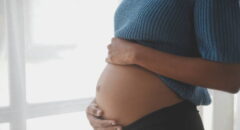
The longtime common belief that “coffee stunts your growth” has been around for years and has been deemed untrue by many doctors. However, can we say the same for excessive caffeine consumption linked to infertility?
Coffee is the world’s most popular beverage and is the second-most traded commodity behind crude oil. According to the gourmet coffee empire Ronnoco, figures from 2011 put the amount of global consumption at a whopping 400 billion cups per year.
It probably comes as no surprise that the United States leads the national pack—over 146 billion of those cups (about 400 million per day) are consumed in America—far outpacing any other nation in terms of consumption. So, what does this mean for women who love their double shots of espresso and are also trying to conceive?
RELATED: Starbucks and Other Coffee Now Require Cancer Warning. Here’s Why
I've heard drinking coffee can make it harder to get pregnant. Is that true?
You may have heard that even moderate amounts of caffeine can delay conception. The truth is no one is really sure.
One often-cited study from the 1990s found that women who had the equivalent of three cups of coffee a day lowered their likelihood of conceiving by as much as 27 percent. But researchers at Harvard Medical School who conducted a review of the literature claimed that there was no convincing evidence that caffeine delays conception.
For example, one study from the San Francisco Bay Area found that caffeine had no effect on a woman's odds of conceiving and that moderate tea drinkers were actually twice as likely to conceive per menstrual cycle.
So what should you believe? Maybe it's best to rely on your own judgment. If you've been trying to get pregnant for several months without success, and you've already given up alcohol and smoking, you may want to try limiting your total intake of caffeine from coffee, soda, and chocolate -- especially if you regularly get more than 300mg a day.
Although there's no compelling reason to swear off your morning fix and occasional latte, you might even prefer to give up caffeine entirely.
If you're in your 30s, and you've been trying to conceive for more than six months, it may be a good idea to consult your physician to find out if you or your partner might have a fertility problem. It's more common than you might think.
Can men drink all the coffee they want?
Studies since the 1980s show that small amounts of caffeine increase the percentage of mobile sperm in semen (the speed of the sperm was unaffected). However, these studies were conducted by adding caffeine to sperm samples — in real life, the effects of caffeine may be different.
One study published in the journal, Human Reproduction, looked at men whose partners were undergoing either in vitro fertilization (IVF) or gamete intrafallopian tube transfer (GIFT). Men participating in the study who increased their normal caffeine intake by the equivalent of one cup of coffee per day were found to have double — and, in some cases, triple — the odds of multiple gestations.
Discussing this and other findings, the researchers concluded that the findings, if replicated, suggest that "couples undergoing IVF or GIFT might benefit from a reduced caffeine intake before the initial clinic visit."
How much caffeine do different foods and drinks contain?
The average person consumes about 120 mg of caffeine a day, which is a moderate amount. We get about 75 percent of our caffeine from coffee, 15 percent from tea, 10 percent from soda, and 2 percent from chocolate.
Caffeine is a common ingredient in foods, so 300 mg adds up more quickly than you might think. Tea and chocolate also contain other stimulants related to caffeine, called theophylline and theobromine, and these have an unknown effect on human fertility.
Is it safe to drink coffee during pregnancy?
According to guidelines released by the American Congress of Obstetricians and Gynecologists, women can drink a cup of coffee a day without fearing that it might put them at risk of miscarriage or premature birth.
The association's committee found no link between moderate coffee drinking — less than 200 milligrams of caffeine a day — and preterm birth or miscarriage after reviewing the literature on the issue. But moderate coffee drinking, in this case, is barely more than one cup of joe: a regular 8-ounce cup of brewed coffee contains about 137 milligrams.
Of course, if you're planning to cut back or give up caffeine altogether, you may prefer to avoid it during pregnancy as well. Many women develop a caffeine aversion when they're pregnant, so it may be an easy decision.
Still on the fence about avoiding caffeine to conceive? Our suggestion is to ask your doctor and take it day by day. Overanalyzing things can cause stress. Relieve your worries and confide in your local healthcare provider.









